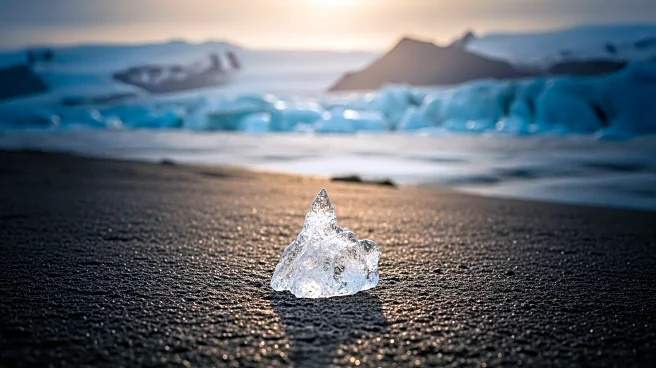What's Happening?
For the first time, mosquitoes have been discovered in Iceland, a country previously inhospitable to these insects. The discovery was made by citizen scientist Björn Hjaltason, who identified the mosquitoes as the species Culiseta annulata. This species is known
for its cold resistance, which may allow it to survive Iceland's harsh winters. The presence of mosquitoes in Iceland is attributed to warming temperatures, which are making the country more suitable for these insects. Iceland is warming at a rate four times faster than the rest of the Northern Hemisphere, leading to significant environmental changes.
Why It's Important?
The arrival of mosquitoes in Iceland is a significant indicator of climate change's impact on global ecosystems. As temperatures rise, species that were once confined to warmer climates are expanding their range, potentially introducing new diseases to previously unaffected areas. This development could have serious implications for public health, as mosquitoes are known carriers of diseases such as dengue and Zika virus. The situation in Iceland serves as a warning of the broader ecological shifts that may occur as global temperatures continue to rise.
What's Next?
The long-term presence of mosquitoes in Iceland will depend on their ability to survive the winter months. If they establish a permanent population, it could lead to changes in local ecosystems and potentially introduce new health risks. Scientists and public health officials will likely monitor the situation closely to assess the potential impact on Iceland's environment and public health. Additionally, this development may prompt further research into the effects of climate change on species distribution and the potential for new disease vectors in previously unaffected regions.















